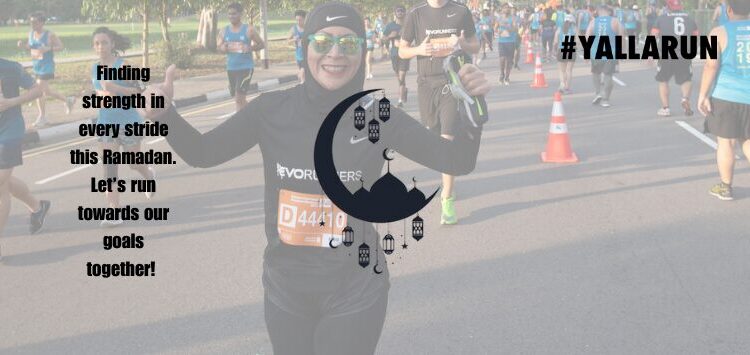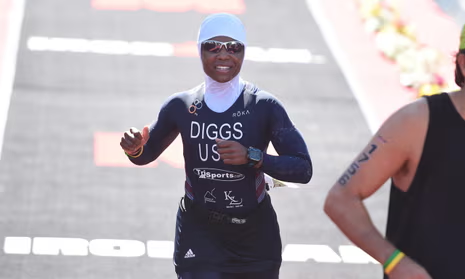
Fasting during Ramadan presents unique challenges for marathoners and runners. With careful planning and adjustments, athletes can maintain their performance while honoring their spiritual commitments. This article explores effective strategies for training, nutrition, hydration, and recovery during this holy month.
Understanding Ramadan and Fasting
Ramadan is the ninth month of the Islamic lunar calendar, marked by fasting from dawn until sunset. Fasting involves abstaining from food, drink, and other physical needs during daylight hours. For runners, this means adjusting their training routines to accommodate fasting schedules.
Adjusting Your Training Routine
Finding the Right Time to Run
One of the most critical adaptations for fasting runners is timing. Many choose to run after iftar (the evening meal) when they can refuel and rehydrate. Others may prefer to run just before suhoor (the pre-dawn meal) to avoid the heat of the day. Experimenting with these options can help determine what works best for individual energy levels.
Reducing Intensity and Volume
During Ramadan, marathoners might consider reducing the intensity and volume of their workouts. Instead of long runs or intense speed sessions, focus on shorter, more manageable workouts that maintain fitness without overexertion. This approach can help prevent fatigue and injury while still allowing for some level of training progression.

Nutrition Tips for Runners During Ramadan
Suhoor: The Pre-Dawn Meal
Suhoor is crucial for providing the energy needed throughout the day. Runners should aim for a balanced meal that includes complex carbohydrates, protein, and healthy fats. Foods like oats, whole grains, eggs, and fruits can provide sustained energy. Hydration is also vital, so include plenty of water or hydrating foods.
Iftar: Breaking the Fast
After a day of fasting, it’s essential to replenish nutrients and fluids. Begin iftar with dates and water, as is tradition, before moving on to a balanced meal. Incorporate lean proteins, vegetables, and whole grains to refuel muscles and restore energy levels. Avoid heavy, fatty foods that can lead to digestive discomfort.

Hydration Techniques for Fasting Runners
Importance of Staying Hydrated
Proper hydration is crucial for runners, especially during Ramadan. Since water intake is limited to the hours after sunset and before dawn, strategizing hydration becomes essential. Aim to drink plenty of water during non-fasting hours, and consider incorporating hydrating foods like watermelon, cucumbers, and soups into your meals.
Electrolyte Balance
Maintaining electrolyte levels is also important. Consider consuming sports drinks or electrolyte-enhanced water after workouts and iftar to help replenish lost salts and minerals. This can aid in recovery and prevent dehydration.
Injury Prevention for Marathoners During Ramadan
Listening to Your Body
Fasting can affect energy levels and physical performance. It’s crucial for runners to listen to their bodies and adjust their training accordingly. If feeling fatigued or unwell, it may be necessary to skip a workout or opt for light stretching and mobility exercises instead.
Incorporating Rest Days
Incorporating rest days into the training schedule can help mitigate the risk of injury. Allowing the body to recuperate is especially important during Ramadan when energy levels may fluctuate.
Mental Preparation for Runners Fasting in Ramadan
Setting Realistic Goals
Setting realistic goals for training during Ramadan is essential. Understand that performance might not match pre-Ramadan levels, and that’s okay. Focus on maintaining consistency rather than striving for personal bests.
Staying Motivated
Finding ways to stay motivated during this month can be challenging. Joining a running group or connecting with fellow runners who are also fasting can provide support and encouragement. Setting small, achievable goals can also help maintain motivation.
Combining Ramadan Observances with Marathon Training
Balancing Spirituality and Physical Training
Ramadan is a time for spiritual reflection and growth. Finding ways to integrate these observances with training can enhance the overall experience. Consider incorporating mindfulness practices, such as meditation or prayer, into your routine to create a holistic approach to running during Ramadan.
Best Time to Run while Fasting
Running during Ramadan can be a rewarding experience if timed correctly.
The best time to run while fasting is either just before the pre-dawn meal (Suhoor) or after the evening meal (Iftar). Running before Suhoor allows individuals to hydrate and fuel their bodies right after, which is essential for recovery.
However, many find that running after Iftar is more comfortable since they can replenish their energy and hydration levels before exercising. This timing also allows for a more enjoyable running experience, as the body is no longer in a fasting state.
Additionally, running after Iftar helps maintain energy levels throughout the night, aiding in overall fitness goals.
Regardless of the chosen time, it is crucial to listen to your body and adjust the intensity of your workouts to ensure you remain healthy and energized during this holy month.
Ultimately, finding a routine that suits your personal schedule and energy levels is key.
Read more about running before iftar or after here!

Post-Fast Recovery for Runners
Importance of Recovery
After a day of fasting, the body needs time to recover, especially after workouts. Focus on proper post-run nutrition that includes protein and carbohydrates to aid in muscle recovery. Additionally, ensure adequate hydration and rest to facilitate recovery.
Additional Tips for Fasting Runners
- Prioritize Sleep: Adequate sleep is essential for recovery. Try to maintain a consistent sleep schedule, even if it means taking short naps during the day to compensate for late-night activities.
- Consider Cross-Training: If running feels too strenuous during fasting, consider incorporating low-impact activities like swimming, cycling, or yoga to maintain fitness levels without over-exerting yourself.
- Utilize Technology: Use fitness apps or wearables to track your workouts and nutrition. This can help you stay accountable to your training goals while being sensitive to your fasting schedule.
- Stay Flexible: Be prepared to adjust your training plan as needed. Some days may be more challenging than others, so it’s important to remain flexible and prioritize your health and well-being.
- Connect with Community: Sharing experiences with fellow runners can provide support and motivation. Consider joining local running groups that accommodate fasting runners or participating in virtual running challenges.
Conclusion
Fasting during Ramadan can present unique challenges for marathoners, but with thoughtful planning and adjustments, it is possible to maintain a running routine while honoring spiritual commitments. By adjusting training schedules, focusing on nutrition and hydration, and listening to one’s body, runners can navigate this month successfully.
Ultimately, Ramadan can be a time not only for spiritual growth but also for cultivating resilience and discipline in one’s athletic journey. Embracing the challenges of fasting while training for a marathon can lead to personal growth and a deeper connection to both faith and fitness.

Leave a Reply